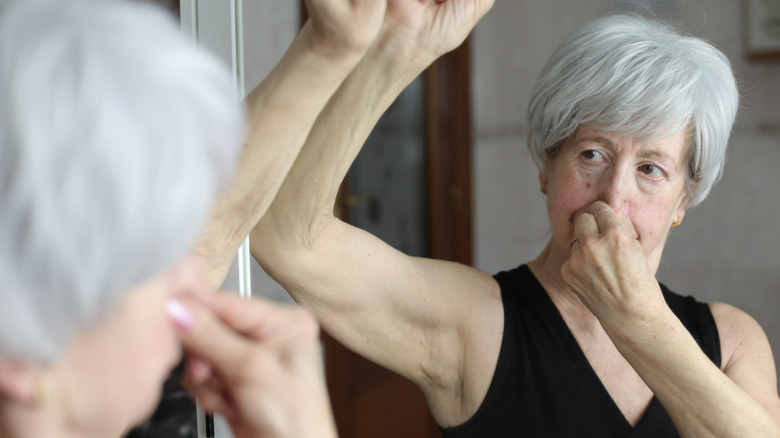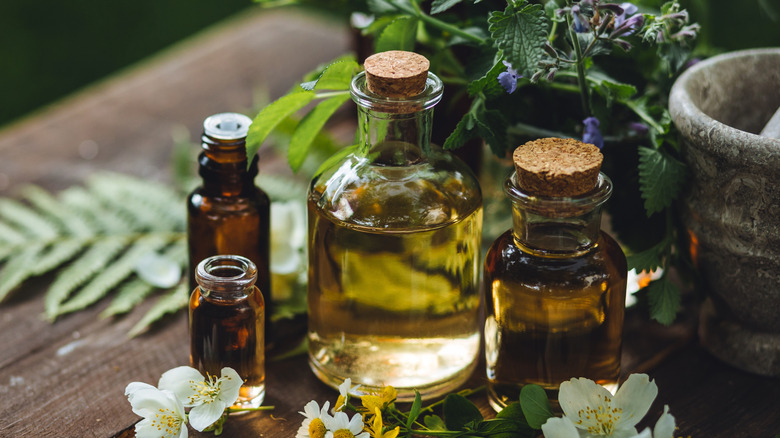The 'Old People Smell' Phenomenon Is Easily Explained By Science
We may receive a commission on purchases made from links.
Contrary to widespread belief, the human sense of smell is better than animals in some respects. Our noses are particularly adept at pinpointing the scent of fine wine, and there's even a superhuman smelling ability that could actually save lives — a woman can smell Parkinson's disease. If you've ever been around seniors and noticed that they all have a mildly sweet and musty scent (some people describe it as old books), you can thank your sense of smell for that, not to mention science.
The "old people smell" is generally considered a stereotype, but scientific research indicates that this smell is a common part of aging and related to an increase in 2-nonenal, an unsaturated aldehyde (organic compound) that has an off-putting grassy, greasy odor. This compound is produced during lipid peroxidation — a process that involves oxidants attacking carbon-carbon double bond lipids, mostly polyunsaturated fatty acids. Basically, the air oxidizes the unsaturated fatty acids that the skin secretes, and the flora bacteria on your skin metabolize it.
The 2-nonenal byproduct that this process creates is what emits the aging odor reminiscent of candle wax or old pomade, and it only seems to be present on the skin of older individuals. In fact, a study published by the Japanese Society of Anti-Aging Medicine in 2010 didn't detect 2-nonenal in younger participants but did detect it in 69% of the participants who were 40 years and older.
Is it possible to avoid smelling like you're aging?
Although a study published in PLoS ONE in 2012 found that most people don't find the old-age odor associated with 2-nonenal to be off-putting, not everyone wants their smell to give away their age. Baking soda gets rid of odors well, absorbing musty smells from used books in libraries, but putting all over your body isn't the most appealing thought.
Instead, University of Florida College of Medicine professor Dr. Dan Wesson told Fox News Digital that the fatty composition of 2-nonenal isn't easy to just wash off with your typical hygiene products, so "managing this body odor requires more complex solutions." He recommends eating foods that are rich in antioxidants — mainly fruits and vegetables — and staying hydrated. Antioxidant skin care can help as well.
While the chemistry of perfume has a unique reaction with the chemistry of your skin to make you smell good, it only covers up the aging scent. One of the best ways to get rid of the smell is to use cleansing products that contain persimmon extract, which has naturally deodorizing and purifying properties. According to a study published in the Journal of Japan Association on Odor Environment, the polyphenols present in persimmon are effective at significantly reducing the amount of 2-nonenal on skin because of their anti-oxidative and deodorizing characteristics, considerably improving odor intensity. These plant micronutrients also naturally occur in green tea and oolong tea.
So, is it possible to avoid smelling like you're aging? The short answer is yes. All it takes is an antioxidant-rich diet and persimmon-containing skin care products.

